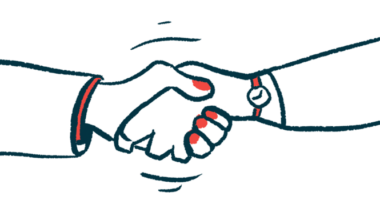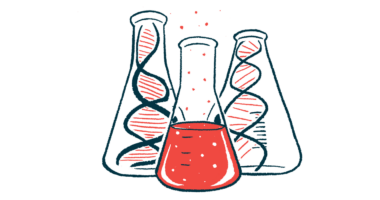Positive early results seen for CAR T-cell therapy for myeloma in trial
Nexcella to seek FDA OK to test NXC-201 in US clinical study

Most patients with hard-to-treat multiple myeloma given NXC-201 — Nexcella’s experimental point-of-care CAR T-cell therapy — as part of a clinical trial in Israel have responded to treatment, with the response appearing to be long-lasting and the side effects manageable.
That’s according to up to nearly 1.5 years of data from the first 50 NXC-201-treated patients in the Phase 1b/2 trial. Dubbed NEXICART-1 (NCT04720313), it is underway at Hadassah University Hospital, in Jerusalem.
The findings were shared in a poster, titled “Point-of-care CART manufacture and delivery for the treatment of multiple myeloma and AL amyloidosis: the experience of Hadassah Medical Center,” at the European Society for Blood and Marrow Transplantation 49th Annual Meeting, held last week in Paris.
In the months ahead, Nexcella plans to file an investigational new drug application with the U.S. Food and Drug Administration (FDA) asking to expand NXC-201’s clinical testing to the U.S. The company also plans to submit a biologics license application (BLA) with the FDA, seeking the therapy’s approval, once certain patient thresholds — specifically, treatment of 100 people with multiple myeloma — have been met.
“We continue on our path toward 100 patients treated with NXC-201 and a planned BLA submission to the FDA for approval of NXC-201,” Gabriel Morris, Nexcella’s president, said in a company press release.
Trial testing CAR T-cell therapy in patients already given at least 3 treatments
Multiple myeloma is a cancer of plasma cells, a type of white blood cells that produce antibodies. In people with multiple myeloma, these cells grow out of control in the bone marrow of many different bones.
When this happens, they no longer produce antibodies to protect the body from infections. Instead, they produce abnormal proteins that can cause symptoms affecting the kidneys, bones, nervous system, and blood.
New myeloma treatments are needed, particularly for patients whose disease has relapsed, or come back, or is refractory, meaning it no longer responds to a available medications.
In recent years, there have been many advances in CAR T-cell therapy, a type of treatment based on collecting and modifying a patient’s own T-cells. Altering these T-cells, another type of white blood cells, can create a tailored treatment in the lab that’s then infused back to the patient.
Like Abecma (idecabtagene vicleucel) and Carvykti (ciltacabtagene autoleucel) — two approved CAR T-cell therapies for relapsed or refractory multiple myeloma — NXC-201 contains T-cells modified to attach to a protein called B-cell maturation antigen, or BCMA.
This protein is present in large amounts on the surface of myeloma cells. When the modified T-cells attach to BCMA, they kill the cancer cells while leaving healthy cells largely untouched.
Contrary to Abecma and Carvykti, however, NXC-201 is “manufactured and delivered to patients in-house, considerably shortening the ‘vein-to-vein’ waiting time, which is critical especially for rapidly deteriorating patients,” the researchers wrote.
The Phase 1b/2 NEXICART-1 trial is testing NXC-201 in adults, ages 18 and older, with relapsed or refractory multiple myeloma who received at least three prior lines of therapy. These including a proteasome inhibitor, an immunomodulatory agent, and at least one CD38 inhibitor.
The goal of the dose-escalation Phase 1b portion was to find NXC-201’s optimal dose for the subsequent Phase 2 portion. The recommended dose was set at 800 million CAR T-cells based on higher and deeper responses to the therapy.
In the ongoing Phase 2 portion of the study, researchers are looking at the overall response rate, that is, the proportion of patients who have a partial or complete response to treatment. The team also is looking at the duration of the response.
Data show response rate to NXC-201 over 80%
In total, six patients received the lowest dose of 150 million CAR T-cells and seven patients received a medium dose of 450 million CAR T-cells. The higher dose, 800 million CAR T-cells, was given to 37 patients.
As of the February 9 data cutoff, median follow-up was 5.7 months, ranging from 0.6 to 17.5 months, or nearly 1.5 years.
The results showed that 82% of all patients responded to NXC-201, with a dose-dependent increase in response rate. Among those given the higher dose of the therapy, 87% had some response and 57% showed a complete response, or total cancer eradication.
In this subgroup of patients, the overall response rate was found to be higher for those never treated with a BCMA-targeting therapy relative to those who had (92% vs. 75%).
Moreover, these patients lived for a median of 12.3 months, or about a year, without signs of disease progression. Median overall survival had not yet been reached for this subgroup of patients, meaning that more than half were still alive at the last follow-up.
“Additionally, favorable NXC-201 safety data support investigating NXC-201 as the first potential outpatient CAR-T cell therapy, potentially reducing NXC-201 CAR-T-related hospitalization costs by up to 80%,” Nexcella stated in the release.
Favorable NXC-201 tolerability could result in not only a 3-day hospital stay instead of the CAR-T standard 14-day hospital stay, but also enable NXC-201 to be delivered in the 95% of US medical centers that cannot offer CAR-Ts today.
According to Polina Stepensky, MD, the trial’s principal investigator, “the overall response rate for Abecma was 72% in its pivotal KarMMa trial with 100 patients in relapsed or refractory multiple myeloma.”
“We continue to be very encouraged by NXC-201 clinical results,” said Stepensky, who also directs the department of bone marrow transplantation and immunotherapy for adults and children at Hadassah Medical Organization, which sponsored the study.
“NXC-201 may offer a valuable option for [multiple myeloma patients] who have progressed on standards of care,” Stepensky said.
Ilya Rachman, MD, executive chairman of Nexcella, said that “95% of US medical centers cannot offer CAR-T today due to their severe side effect profile.”
“Favorable NXC-201 tolerability could result in not only a 3-day hospital stay instead of the CAR-T standard 14-day hospital stay, but also enable NXC-201 to be delivered in the 95% of US medical centers that cannot offer CAR-Ts today, potentially reducing hospitalization costs by up to 80%,” Rachman said.








